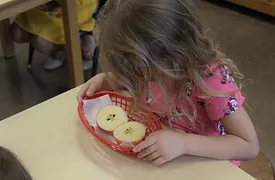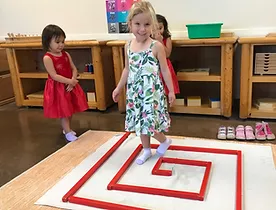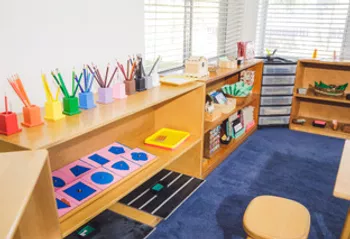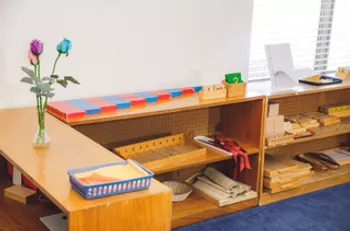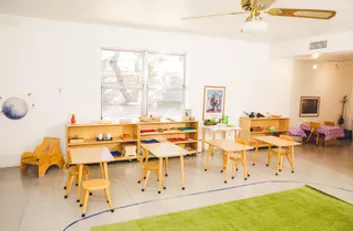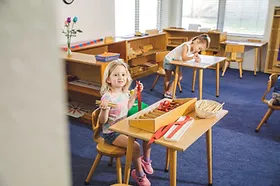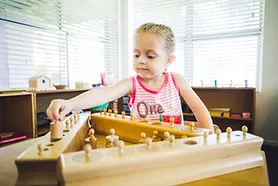Sunrise Montessori SchoolPreschoolWe provide education encompassing the social, emotional, intellectual, and physical growth of each child.
Our SchoolThe Montessori Preschool Classroom
In the 3 to 6 year old period, the child unfolds like a flower and the world is at the child’s fingertips, consciousness shines through, and memory begins. Before age 3, these powers are being created in the child, and after age 3 these powers are being developed and refined. During the 0 to 3 period, the child is dependent on adults for everything. As the child enters the 3 to 6 plane of development, the child feels oppressed by adult intervention and begins to protest being helped. The child is trying to learn how to master their environment. This begins a period of construction of the child’s environment in a conscious and deliberate way. As the child navigates their environment, they are not engaging in random activity, but in purposeful activity, which helps them grow.His hand guides his intelligence. This is a sensitive period for independence and establishing competence in mastering their environment.
Rewards are not necessary. The intrinsic reward is joy in the work itself and the child’s independence in doing the work. The director teachers the necessary skills required for the child to become independent. The child understands that their accomplishments stand-alone and they develop a love of learning. In discussing Montessori philosophy, freedom and independence can be misunderstood. Freedom is the end result of a person acquiring independence. As a child turns 3 and comes into a state of conscious learning, he is now ready to begin learning the fundamentals of independent living. The Montessori classroom starts by teaching basic living skills, such as hand washing, how to walk on a line, how to use a zipper. If we want our children to have freedom, we must teach them independence first. Independence is a learned behavior. Freedom can be attained only after the child has mastered self-control and self-motivation.

